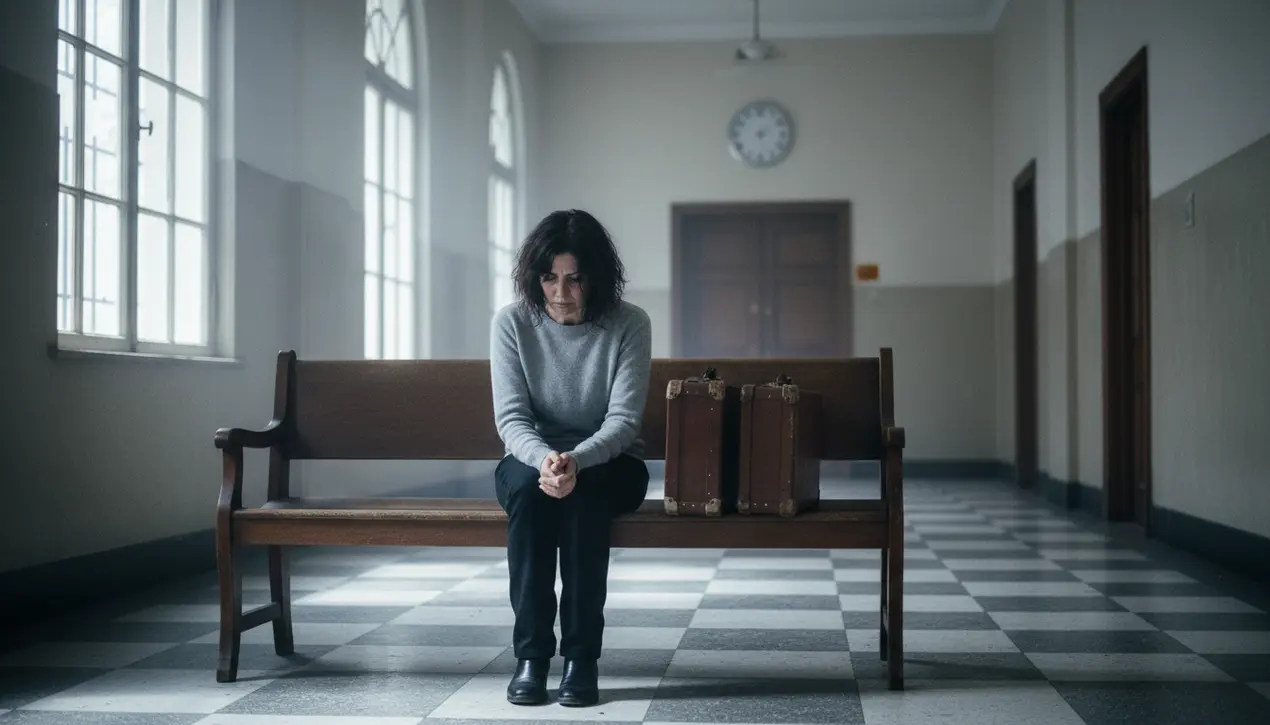
Otherlaw & courtsCriminal Cases
New Zealand mother sentenced to life for suitcase murders of children.
LA
Laura Bennett
1 day ago7 min read1 comments
In the quiet aftermath of a courtroom in New Zealand, a story of profound human tragedy has reached its legal conclusion, yet its emotional resonance will linger for years to come. Hakyung Lee, a mother, was sentenced to life in prison for the unthinkable: the murder of her two young children, whose small bodies were discovered months after their deaths, concealed within suitcases.This case is not merely a stark entry in a criminal ledger; it is a devastating human puzzle that forces us to confront the darkest corners of parental despair and the complex interplay of grief, mental health, and societal pressures. The sequence of events is harrowing in its simplicity.Lee's husband, the children's father, had succumbed to cancer mere months before this horrific act. One can only imagine the tectonic shift that loss created within that household—the anchor of the family suddenly gone, leaving behind a chasm of sorrow and the overwhelming, solitary weight of raising two children.The psychological landscape of a caregiver in such a situation is fragile terrain. Experts in forensic psychology often speak of the 'snowball effect' in familicide, where an accumulation of stressors—financial ruin, social isolation, untreated mental illness, and a catastrophic personal loss like the death of a spouse—creates a perceived inescapable trap.It is within this vortex of despair that rational thought collapses, and the unthinkable can emerge as a distorted solution. The method of concealment, using suitcases—objects synonymous with travel, new beginnings, and movement—adds a layer of chilling irony to the crime.They became not vessels for adventure, but tombs, their contents hidden from the world in a desperate, and ultimately futile, act of secrecy. The discovery of the suitcases, which occurred in a storage facility, sent shockwaves through New Zealand and international communities, raising urgent questions about the invisible struggles within our neighborhoods.How could such a tragedy unfold unnoticed? What signs might have been missed by extended family, friends, or social services? This case echoes other, rare but equally shocking, instances of maternal filicide, forcing a uncomfortable societal introspection about the support systems, or lack thereof, for families in crisis. The sentence of life imprisonment delivers a clear judicial response to the act itself, a necessary affirmation of the sanctity of the children's lives.Yet, it also marks the beginning of a different kind of sentence for Lee—a lifetime confined not just by prison walls, but by the unending psychological torment of her actions. The narrative here is not one of monsterization, but one of profound human failure—a failure of an individual's coping mechanisms, and potentially, a failure of the communal safety net designed to catch those in freefall. The children, whose names and dreams were extinguished, become the eternal, silent center of this story, a somber reminder of the most vulnerable among us and the absolute duty we share to protect them.
#homicide
#child murder
#life sentence
#New Zealand
#criminal trial
#featured
Stay Informed. Act Smarter.
Get weekly highlights, major headlines, and expert insights — then put your knowledge to work in our live prediction markets.
Related News
Comments
Loading comments...
© 2025 Outpoll Service LTD. All rights reserved.